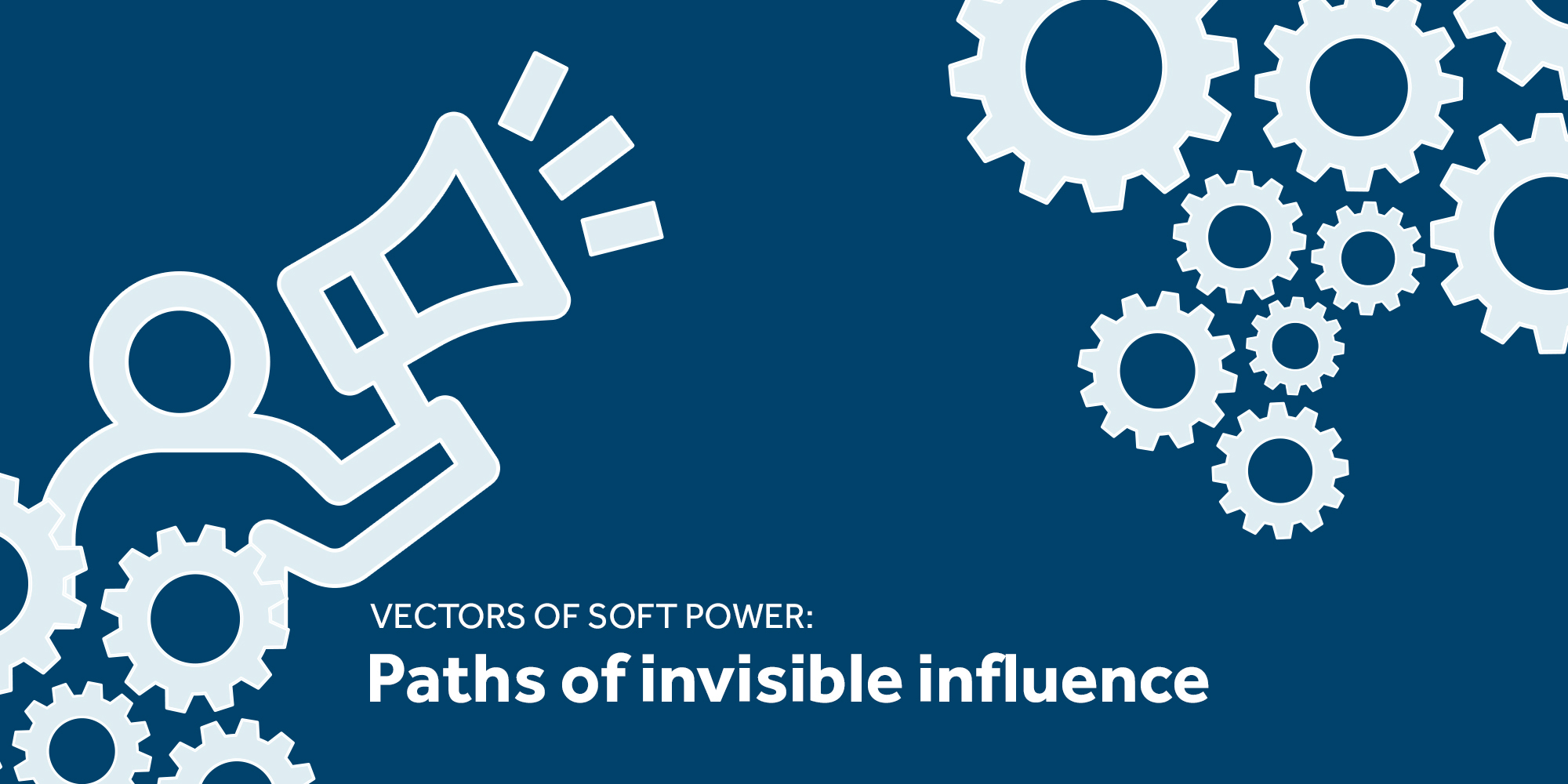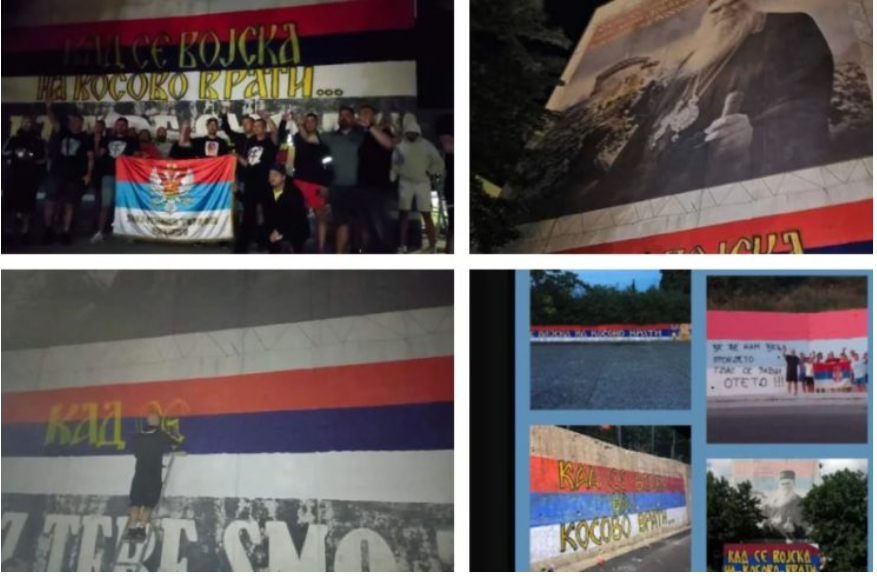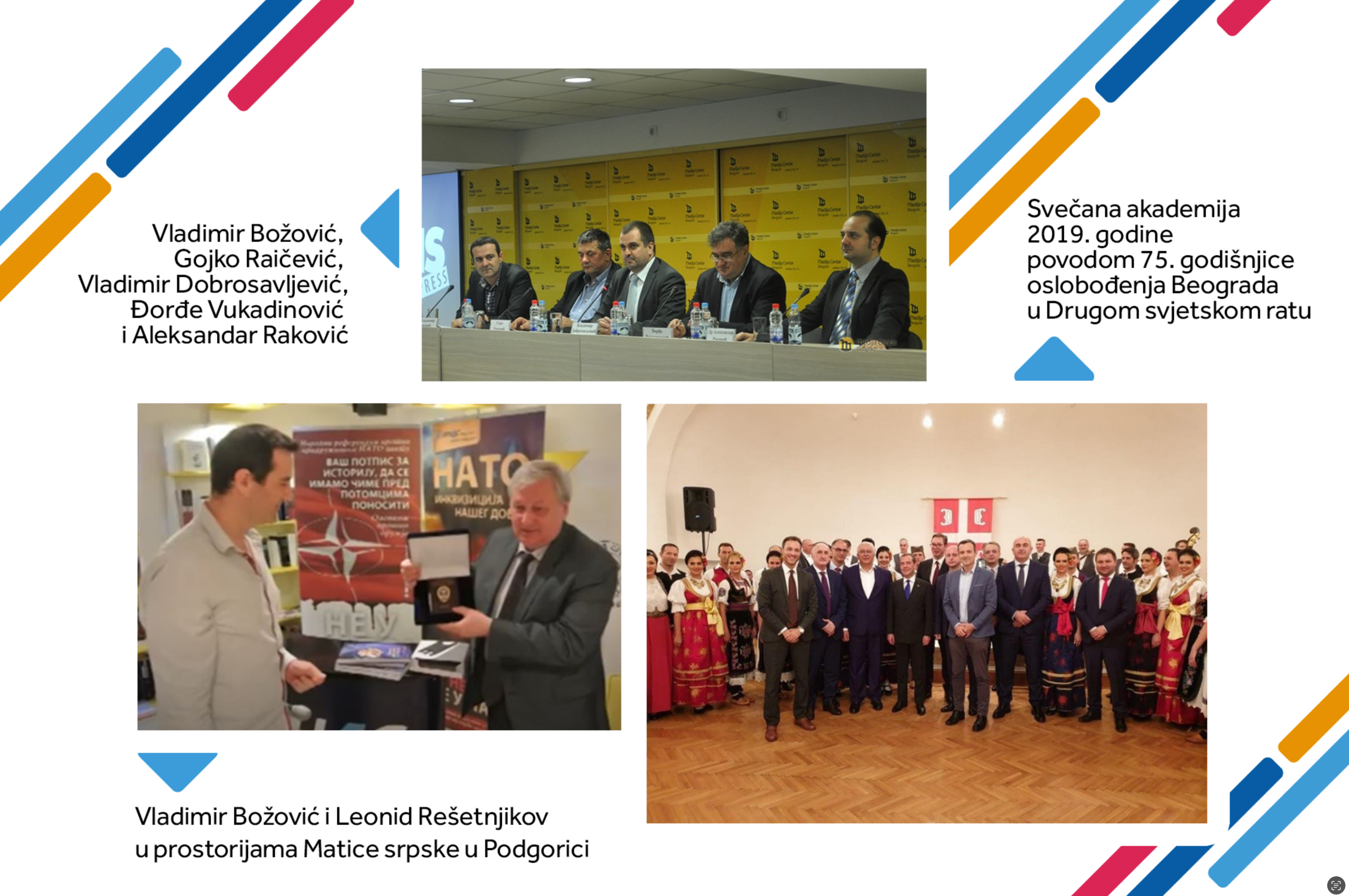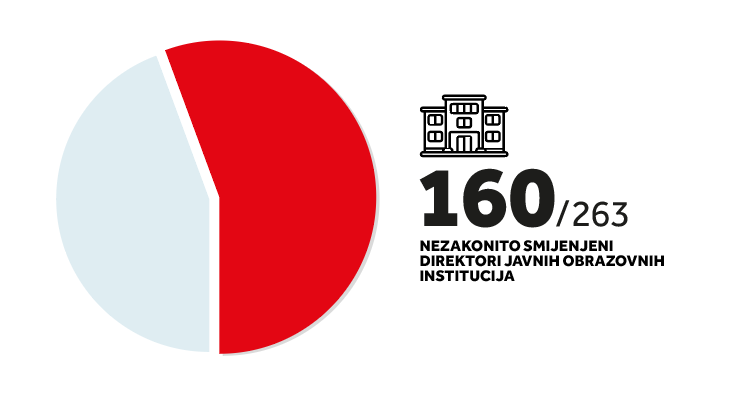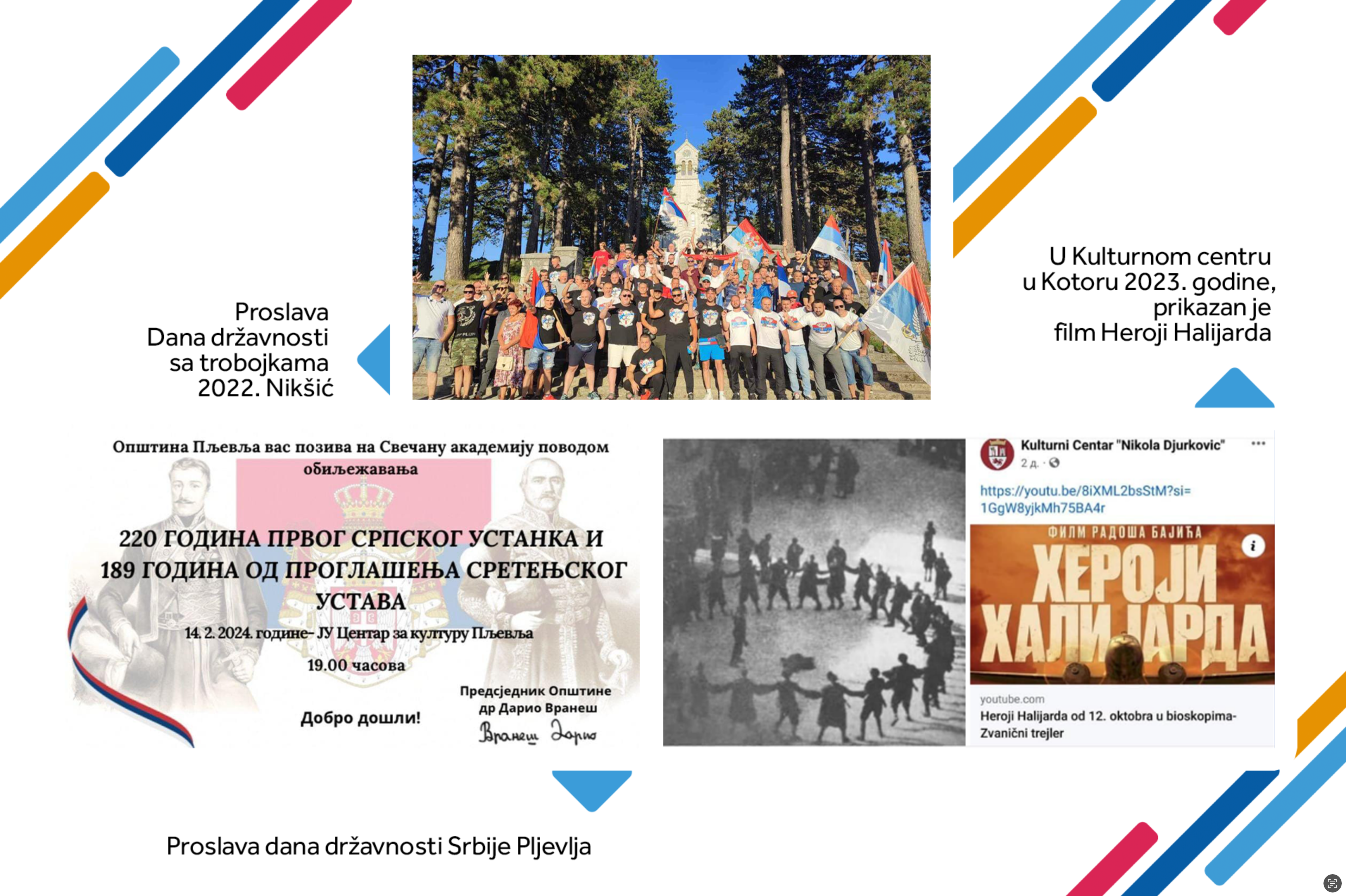The DFC study Unbreakable Bonds or Geopolitical Strategy tackles the socio-political engagement of Vladimir Božović, former president of the Matica srpska in Montenegro, current rector of the University of Montenegro, and founder of the unregistered propaganda portal IN4S. The Overton window illustrated the extent of implementation of ideas sublimated by the strategy of the soft power vector, which Božović introduced in 2015, specifically the concretization of the Russian-Serbian agenda of influence in Montenegro.
In 2015, Vladimir Božović identified the Serbian Orthodox Church (SOC) as a key vector for implementing the strategy of Russian and Serbian influence in Montenegro. He substantiated this claim by stating that Montenegro is a country of Orthodox, pro-Russian, and Pan-Slavic spiritual essence, drawing parallels between Montenegro and Ukraine. In the process of spreading influence, the Russian Orthodox Church (ROC) has the same role in Ukraine as the SOC in Montenegro. In Montenegro, the SOC relies on militant Orthodox brotherhoods and organizations that constantly divide Montenegrin society, organize anti-Western and anti-NATO protests, and influence the division and radicalization of Montenegrin society during important socio-political events. The activities of the SOC transcend the spiritual role of the church in society and are implemented through a para-political agenda. The goals of this agenda are implemented through Božović’s thesis on the substantive volume of Serbian and pro-Russian social consciousness, specifically through the unification of the religious procession political potential, thus decisively influencing the political processes in the country. From 2015 to 2017, the SOC participated in anti-NATO activities and was the main support for pro-Serbian and pro-Russian actors in the anti-Western agenda.
In addition to being an active participant in the SOC processions, Vladimir Božović also engaged as a part of the expert team of Zdravko Krivokapić, the leader of the For the Future of Montenegro coalition list. He described the simultaneous action of the protest processions and political actors in 2020 as a complex political chess operation. In 2022, the European Parliament adopted a resolution expressing concern over attempts by the Orthodox Church in Montenegro to promote Russia as a protector of traditional family values and to strengthen the relationship between the state and the church. Besides its significant impact on political and social circumstances, since 2020, the SOC has also been increasingly present in the field of education by building Orthodox schools with funds from the state budget, organizing various educational-cultural events, and advocating for the introduction of religious education in school programs. Despite the fact that the entire procedure for licensing and financing two private religious schools of the Serbian Orthodox Church in Montenegro was violated, they were granted €900,000 from the budget by the decision of the Government in a technical mandate, led by Dritan Abazović. From 2021 to 2023, the Government of Montenegro allocated over two million euros to the SOC through the ministries of culture, education, and justice.
In Božović’s analysis of soft power vectors, culture and media play a significant role in changing the value paradigm, namely turning Montenegro towards the anti-Western socio-political direction. Božović’s theory of keeping Montenegro within the Serbian identity field, and thus within the zone of Russian influence, through the strengthening of cultural and media institutions in the region, corresponds with the foundation of pro-Russian and pro-Serbian portals and media in Montenegro. Pro-Russian tabloids from the region and local media proxies play a key role in disinformation campaigns and profiling narratives that target Montenegrin citizens and polarize society. Portals such as IN4S, Borba, Alo, as well as Adria and Prva, use broader narratives that align with the official policies of Belgrade and Moscow. Božović is the founder of the IN4S portal, which is part of the ecosystem of the Russian-Serbian propaganda network and, along with Borba and Aloonline.me, is a main channel for hybrid activities in Montenegro.
Today, four Montenegrin television stations, out of the five, are owned by the capital from Serbia. Considering the size of Montenegro’s media market and the minimal possibility of financial profit, the role of these media is predominantly reflected in influencing public opinion through defining and disseminating narratives aligned with the political agenda of third parties.
Strengthening cultural institutions with a Serbian prefix was one of the main tasks of the current rector’s strategy. In 2017, the Serbian government invested 3.4 million euros to build the Serbian House in Podgorica, and Vladimir Božović is one of the founders of this institution. The Serbian House has served as a headquarters for pro-Russian and pro-Serbian organizations to promote Serbian nationalist politics, which is based on the negation of the civic character of the state. Organizations and associations such as Matica srpska, the Institute for Serbian Culture, the editorial office of the magazine Srpski jug, the Association of Writers of Montenegro, IN4S, Serbian Television, Serbian Newspapers, Serbian Radio, Serbian Literary Guild, and Serbian Cultural Club Zavjet are located in the Serbian House and were formed with the aim of hybrid action on the entire cultural and media space of Montenegro.
The foundation of Božović’s analysis of Russian soft power vectors in Montenegro — overview and perspectives, is based on the alleged change of the Serbian identity of Montenegro, specifically the profound eradication of the Serbian element in the tradition and historical being of the Orthodox people in Montenegro. He recommends that well-planned activity aimed at developing Serbian and Russian institutions in Montenegro will guarantee that it will return to its original, historical spiritual course.
The socio-political tools for the confrontation with the civic character of the state and its reintegration into the Serbian-Russian sphere of influence became apparent with the arrival of Serbian-Russian proxies to power in 2020. One of the first major moves by the government of Zdravko Krivokapić was the illegal dismissal of 160 directors of public educational institutions in Montenegro. In 2021, funding was cut off to the Faculty of Montenegrin Language and Literature. A commission for the re-accreditation of this faculty was formed in the same year, led by Goran Danilović, who holds a negationist attitude towards the Montenegrin language.
Serbian proxies are denying Montenegrin identity and the civic organization of the state through a sophisticated strategy at the local level. While nominally advocating for Montenegro’s entry into the EU at the national level, pro-Russian proxy actors in local environments pursue an agenda incompatible with EU integration. The volume of Russian-Serbian soft power targeted Pljevlja, where in September 2023, the ruling coalition decided that, instead of November 20 (the date when the town was liberated from occupiers in 1944), the Town Day would henceforth be celebrated on the Orthodox religious holiday of Saint Petka. A year later, on February 15, the municipality of Pljevlja marked the Statehood Day of Serbia. In 2023, at the Nikola Đurković Cultural Center in Kotor—named after a fighter of the National Liberation Movement who was killed by Chetniks—a film was shown glorifying the collaborationist Chetnik movement from World War II. In Budva in 2021, Independence Day was celebrated with Serbian tricolor flags on public surfaces. Serbian-Russian propaganda events in Nikšić and direct donations from the Serbian budget to municipal authorities in 2021 illustrate the comprehensiveness of the Serbian-Russian ethnonationalist and right-wing agenda in Montenegro.
Božović’s assertion that cultural conquest is more fundamental because it directly influences the creation and development of historical consciousness regarding belonging and identity is literally reflected in Montenegro’s socio-political reality. These processes aim to provoke an emotional response from citizens, further deepen social polarization, and stimulate ethnic tensions and the incitement of nationalism.
The lack of response from politicized institutions and the limited capabilities of civil society allow Russian-Serbian influence operations to be conducted unhindered in public space. Meanwhile, the main narratives promoted in the most influential media focus on economic and integration themes, which mask the real agenda of proxy actors.

